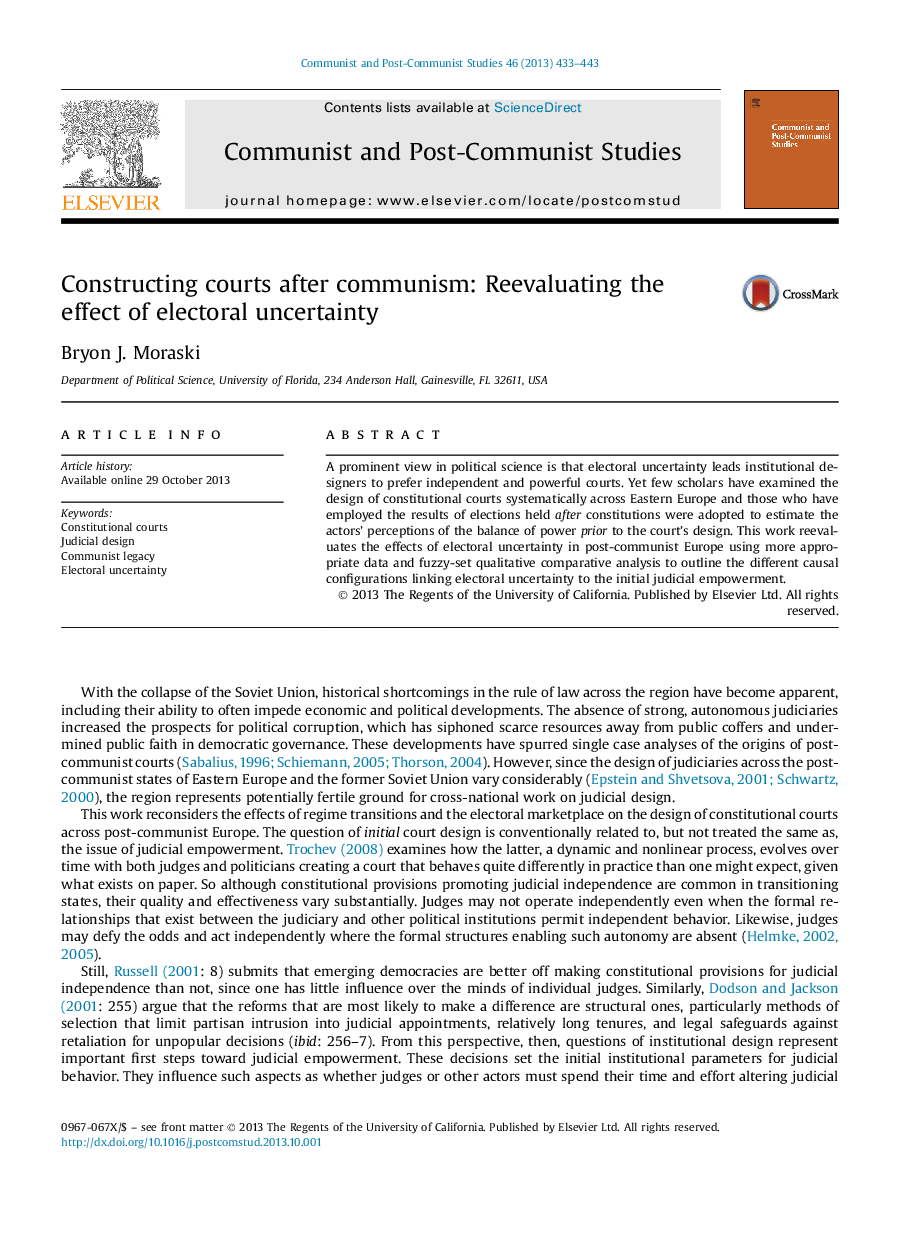| Article ID | Journal | Published Year | Pages | File Type |
|---|---|---|---|---|
| 1046411 | Communist and Post-Communist Studies | 2013 | 11 Pages |
Abstract
A prominent view in political science is that electoral uncertainty leads institutional designers to prefer independent and powerful courts. Yet few scholars have examined the design of constitutional courts systematically across Eastern Europe and those who have employed the results of elections held after constitutions were adopted to estimate the actors' perceptions of the balance of power prior to the court's design. This work reevaluates the effects of electoral uncertainty in post-communist Europe using more appropriate data and fuzzy-set qualitative comparative analysis to outline the different causal configurations linking electoral uncertainty to the initial judicial empowerment.
Keywords
Related Topics
Social Sciences and Humanities
Social Sciences
Development
Authors
Bryon J. Moraski,
